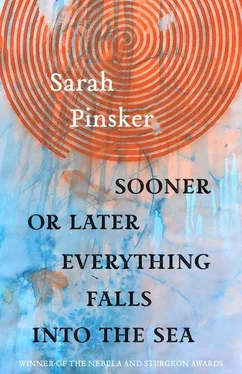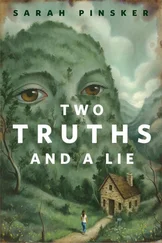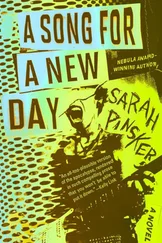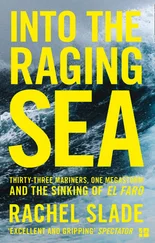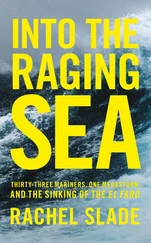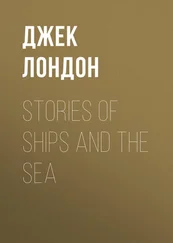— And We Were Left Darkling —
I don’t remember her birth. My dream baby, the baby I have in my dreams, the one who crashed into my head one night and took roost. She is a day old, a week old, a year old, eight years old, three weeks old, a day old. She has fine blond hair, except when she has tight black curls. Once she had cornrows that lengthened every time I looked away.
“Her hair grows faster than I can cut it,” I said to my dream family.
My family in my dream is my family in real life, but less helpful. In my dream, they are standoffish. They offer advice or jokes or criticism. They never take the baby from my arms. Even my wife, my dream version of my real wife, sits on a couch on the far side of the room. She smiles and gives me the occasional thumbs-up. I am supported and loved. I am panicked and out of sorts.
The dreams are so powerful my real breasts fill with milk. They ache. In the dream, nobody gives me any instruction on how to nurse, but we find our way. She never cries.
During the day, I try to explain to Taya. She doesn’t understand. Doesn’t understand the dream baby, the real milk, the disorientation I carry into my morning.
“What do you mean ‘she’s real’?” Taya asks. “Does this have anything to do with giving up on getting pregnant?”
We tried and failed for five years. We’re too old, too broke for the treatments that might get us there. Can’t afford to adopt. In the last year we’ve just stopped talking about it entirely.
“It’s different,” I tell her. “It doesn’t feel like a wanting. It feels like she exists already. She’s real.”
I start taking naps. I go to sleep as soon as I get home from the store, setting an alarm so that I wake a few minutes before Taya gets home from the veterinary clinic. I hide what I can. I don’t know how to say that this is my baby, not ours.
It’s a variation on the same dream every time. Every night and every nap. I am holding my baby, cradling her [blond dark fine napped curly] head. My sisters are there, my parents, my wife. I remark that if I had known the baby was coming, I would have cleaned the floors, run a bath, made some food.
“When was the last time I bathed her?” I ask, though her head smells sweet and clean. Nobody answers.
She reaches for me and I fumble with my shirt. I’m unprepared, awkward. I look to my sister for advice, but she shakes her head and smiles. While the baby nurses, I look out the window at a composite of Georgia O’Keeffe’s 1920s skyscrapers. They gleam silver against the velvet night. Giant windup toy monsters stalk the spaces between [the paintings the towers]. They are genial monsters despite their occasional exhalations of sparks. No buildings are stomped.
My dream baby grows older except when she grows younger. She is sometimes a toddler, except when she’s not. She has left home twice, but each time returned to be a baby the next night. I greet her with relief. I am always surprised to see her. For the first moment, I always wonder that she is mine, even as I know it is true. I try to remember giving birth, but that’s not part of [the plan the dream]. She is always here. She was always here. She is [fourteen eighteen one day] old.
I look online, using the search terms “dream symbolism” and “infants.” The results scroll past. Dreams of great earth changes, the divine child, responsibility, innocence. I dismiss most of it, but one link catches my eye: a bulletin board comment asking for other people who have had extended, repeating, real-feeling dreams of a baby. I click, scroll through the responses. There are hundreds. I don’t read them. I don’t want to find out if I share her. I don’t want to share her.
The third time she leaves home, she leaves for good. For the first time in a year I sleep without dreams. Waking is easier, bedtime is sadder. I miss her. I find the website with the dream babies again. There’s a follow-up post by the same woman, and I read it this time. She is no longer having the dream, either. Two hundred and seventy-two others report the same thing. I should add my voice to theirs, but I don’t want to share the loss any more than I wanted to share my child.
When the babies come back, they all return at once. I recognize mine when I see her on the news. They come out of the ocean, our dream children, naked and beautiful, all different ages. They appear on the rocks off southern California with the sea lions. I would know mine anywhere, even through the television. Her hair is chestnut, like mine. She looks to be eight years old. I remember all the times she was eight in my dreams. The year she broke her arm, the year we made chocolate-chip cookies and let the windup monsters bake them with their breath. She has freckles and skin that browns quickly in the California sun.
I want to book a flight, but Taya refuses. “It’s too weird. And we can’t afford it.”
“The other parents are gathering, though. They’re flying in from all over the world. What if she needs me?” I ask. “What if she needs me and I’m not there?”
Taya shakes her head and scratches at a stain on her green scrub pants. “I’m trying to understand, Jo.” I know she’s trying. I see the worry in her eyes. I book the flight anyway, maxing out our credit card for a same-day ticket. It’s irresponsible. I shouldn’t do it. I don’t even say goodbye.
I’m not the only one. There are other dreamers at the airport. We’re all easy to spot. The security lines loop back on themselves as the agents pull us aside for intrusive searches. We look too vacant, too gone. None of us have luggage. We accept the pat downs without complaint. We watch out the airplane windows, no books or tablets or crosswords in our hands. We’re the ones with our faces in the clouds, clouds in our faces.
We take cabs from the airport in Los Angeles, grouping in twos and threes and fours, telling the confused cab drivers to drop us by the ocean, by the niños del mar. Emphasizing niños, niños. They drop us at the beaches and piers, at the rocky cliff tops. Surfers stare at us with idle curiosity. We only see the figures off the shore.
My boss calls to ask whether I’m sick. I mean to lie, say yes, but what comes out is, “I had to leave town.”
She tells me not to bother coming back. I should mind, but I don’t.
We wait. It’s June, and the evening is crisp but not cool. The air smells like salt. We search our bags and pockets for airline peanuts, for apples and protein bars and whatever we stashed on our way out the door. Concerned locals bring us pizzas and bottled water. We eat with our eyes on the sea, even in the fading light.
The sunset reminds me for a moment that I have never before seen the Pacific, never seen this particular sinking sun. I feel a pang of guilt that I’m watching this without Taya. The children on the rocks are lit from behind, then fall into shadow. The sunset takes them from us afresh.
We tell each other stories about our dream children. They are different and the same. None of us have children of our own outside of dreaming. Those with families always report that our families appear in the dreams. I’m the only one with Georgia O’Keeffe skylines, the only one with windup monsters. Others have Chagalls and Rothkos and that overdramatic painter of light; they have Donkey Kong and Space Invaders and Looney Tunes characters.
“Like Mad Libs,” someone says. “We each fill in the blanks differently.”
It’s easy to poke at the other aspects of the dreams. Nobody pokes at the parts about the children. I don’t know how many others are doing the math that I am doing in my head. There are far more parents on this beach than there are children on the rocks. Does that mean some of us share? Are we all even seeing the same thing? We don’t ask those questions.
Читать дальше
